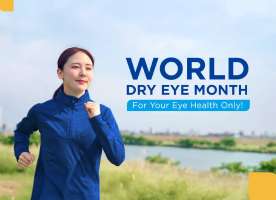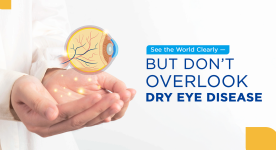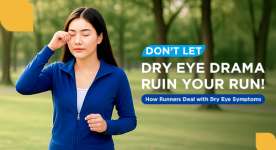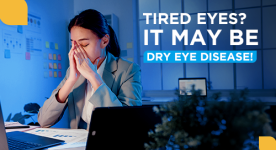Drug-induced dry eye: Knowing your medications
From antiacne medications to antihistamines, many drugs can contribute to the development of dry eye syndrome or be the causes of dry eye. Let's look at the most common ones1-5:
Contraceptive pills
Estrogen may affect the production of the aqueous components in your tear film and therefore dry out your eyes. If you have DED, consult with your gynecologist when using birth control pills or if on hormone replacement therapy for menopause.1-5
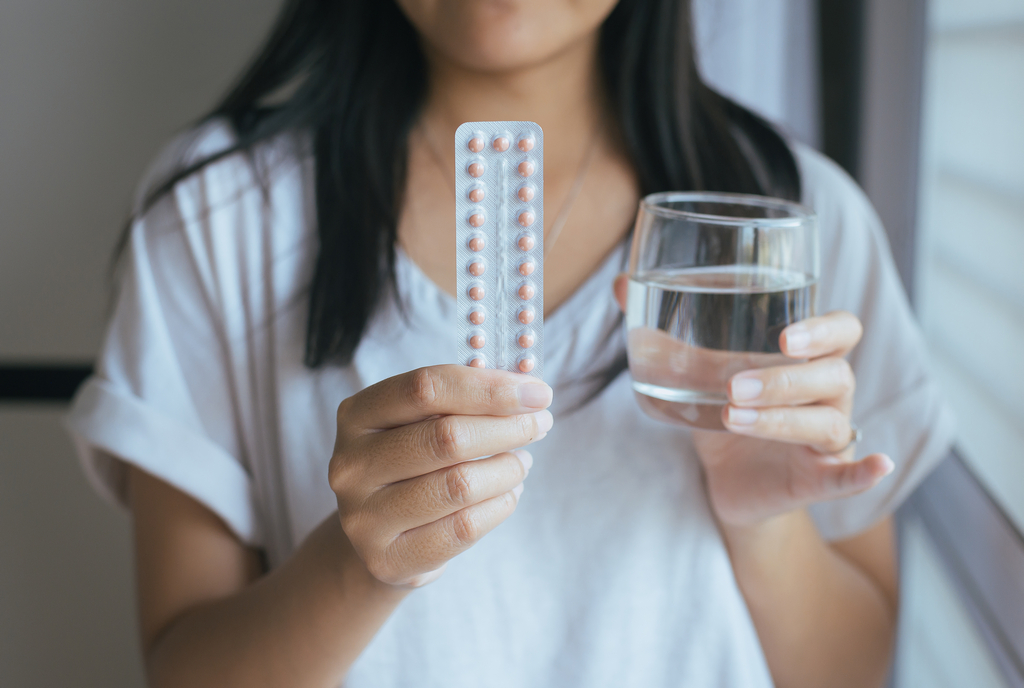
- Fraunfelder, Frederick T, et al. The role of medications in causing dry eye. Journal of ophthalmology vol. 2012 (2012): 285851. doi:10.1155/2012/285851
- J. Daniel Nelson, et al. Non-hormonal Systemic Medications and Dry Eye. Ocul Surf. 2011 Oct;9(4):212-26. https://doi.org/10.1016/S1542-0124(11)70034-9
- Jaanus SD. Ocular side effects of selected systemic drugs. Optom Clin. 1992;2(4):73-96. https://www.ncbi.nlm.nih.gov/pubmed/1363080
- Junping Li, Ramesh C. Tripathi, Brenda J. Tripathi. Drug-induced ocular disorders. Drug Saf. 2008;31(2):127-41. https://www.ncbi.nlm.nih.gov/pubmed/18217789
- Facts About Dry Eye. The national eye institute. https://nei.nih.gov/health/dryeye/dryeye. Last accessed August 25, 2019.
Antihypertensive drugs
Antihypertensive drugs that are classified as beta blockers can reduce tear production and can lead to symptoms of dry eye.1-5
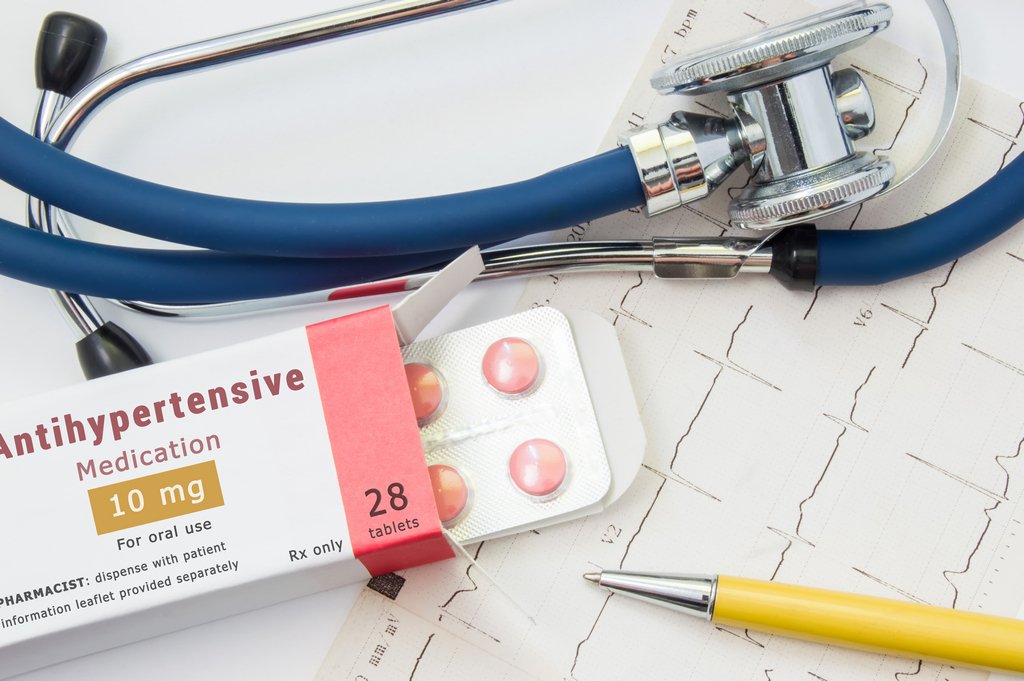
- Fraunfelder, Frederick T, et al. The role of medications in causing dry eye. Journal of ophthalmology vol. 2012 (2012): 285851. doi:10.1155/2012/285851
- J. Daniel Nelson, et al. Non-hormonal Systemic Medications and Dry Eye. Ocul Surf. 2011 Oct;9(4):212-26. https://doi.org/10.1016/S1542-0124(11)70034-9
- Jaanus SD. Ocular side effects of selected systemic drugs. Optom Clin. 1992;2(4):73-96. https://www.ncbi.nlm.nih.gov/pubmed/1363080
- Junping Li, Ramesh C. Tripathi, Brenda J. Tripathi. Drug-induced ocular disorders. Drug Saf. 2008;31(2):127-41. https://www.ncbi.nlm.nih.gov/pubmed/18217789
- Facts About Dry Eye. The national eye institute. https://nei.nih.gov/health/dryeye/dryeye. Last accessed August 25, 2019.
Antihistamines
They block your body's response to allergy triggers and prevent symptoms like watery eyes or runny nose, but they also restrict the lacrimal glands to a point, that there are not enough tears for lubricating your eyes.1-5
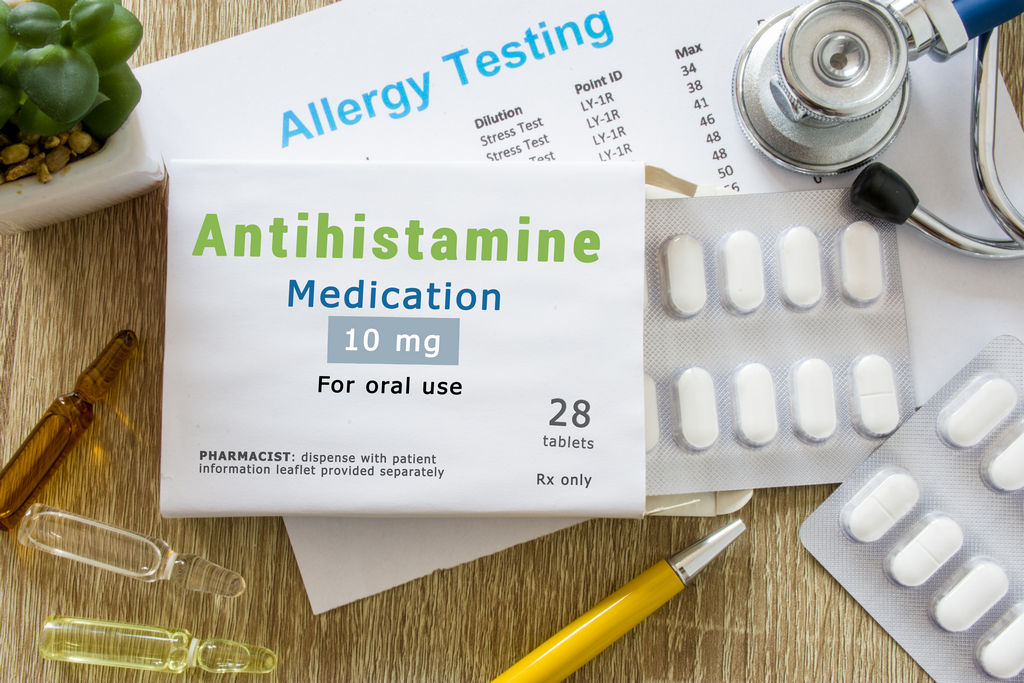
- Fraunfelder, Frederick T, et al. The role of medications in causing dry eye. Journal of ophthalmology vol. 2012 (2012): 285851. doi:10.1155/2012/285851
- J. Daniel Nelson, et al. Non-hormonal Systemic Medications and Dry Eye. Ocul Surf. 2011 Oct;9(4):212-26. https://doi.org/10.1016/S1542-0124(11)70034-9
- Jaanus SD. Ocular side effects of selected systemic drugs. Optom Clin. 1992;2(4):73-96. https://www.ncbi.nlm.nih.gov/pubmed/1363080
- Junping Li, Ramesh C. Tripathi, Brenda J. Tripathi. Drug-induced ocular disorders. Drug Saf. 2008;31(2):127-41. https://www.ncbi.nlm.nih.gov/pubmed/18217789
- Facts About Dry Eye. The national eye institute. https://nei.nih.gov/health/dryeye/dryeye. Last accessed August 25, 2019.
Nasal decongestants
To get rid of stuffy nose in case of cold or allergy, you can rely on a decongestant, because it reduces the swelling in the blood vessels of your nose and increases the airflow. But unfortunately, it may reduce the amount of your tears, too.1-5
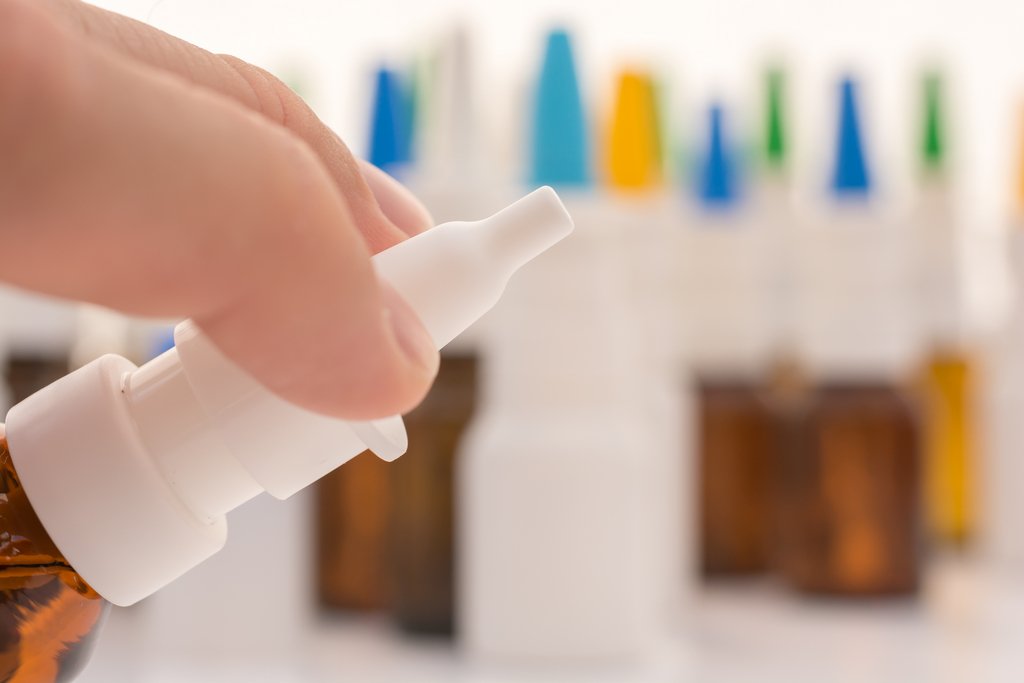
- Fraunfelder, Frederick T, et al. The role of medications in causing dry eye. Journal of ophthalmology vol. 2012 (2012): 285851. doi:10.1155/2012/285851
- J. Daniel Nelson, et al. Non-hormonal Systemic Medications and Dry Eye. Ocul Surf. 2011 Oct;9(4):212-26. https://doi.org/10.1016/S1542-0124(11)70034-9
- Jaanus SD. Ocular side effects of selected systemic drugs. Optom Clin. 1992;2(4):73-96. https://www.ncbi.nlm.nih.gov/pubmed/1363080
- Junping Li, Ramesh C. Tripathi, Brenda J. Tripathi. Drug-induced ocular disorders. Drug Saf. 2008;31(2):127-41. https://www.ncbi.nlm.nih.gov/pubmed/18217789
- Facts About Dry Eye. The national eye institute. https://nei.nih.gov/health/dryeye/dryeye. Last accessed August 25, 2019.
Antidepressants
Anti-anxiety medications and tricyclic antidepressants stop the transfer of signals which activate the glands in your body. These can also affect the lacrimal glands and your eyes produce fewer tears consequently.1-5

- Fraunfelder, Frederick T, et al. The role of medications in causing dry eye. Journal of ophthalmology vol. 2012 (2012): 285851. doi:10.1155/2012/285851
- J. Daniel Nelson, et al. Non-hormonal Systemic Medications and Dry Eye. Ocul Surf. 2011 Oct;9(4):212-26. https://doi.org/10.1016/S1542-0124(11)70034-9
- Jaanus SD. Ocular side effects of selected systemic drugs. Optom Clin. 1992;2(4):73-96. https://www.ncbi.nlm.nih.gov/pubmed/1363080
- Junping Li, Ramesh C. Tripathi, Brenda J. Tripathi. Drug-induced ocular disorders. Drug Saf. 2008;31(2):127-41. https://www.ncbi.nlm.nih.gov/pubmed/18217789
- Facts About Dry Eye. The national eye institute. https://nei.nih.gov/health/dryeye/dryeye. Last accessed August 25, 2019.
Pain relievers
If you use OTC pain medications like ibuprofen and acetaminophen (paracetamol), at especially high doses, you may experience dry eye symptoms.1-5
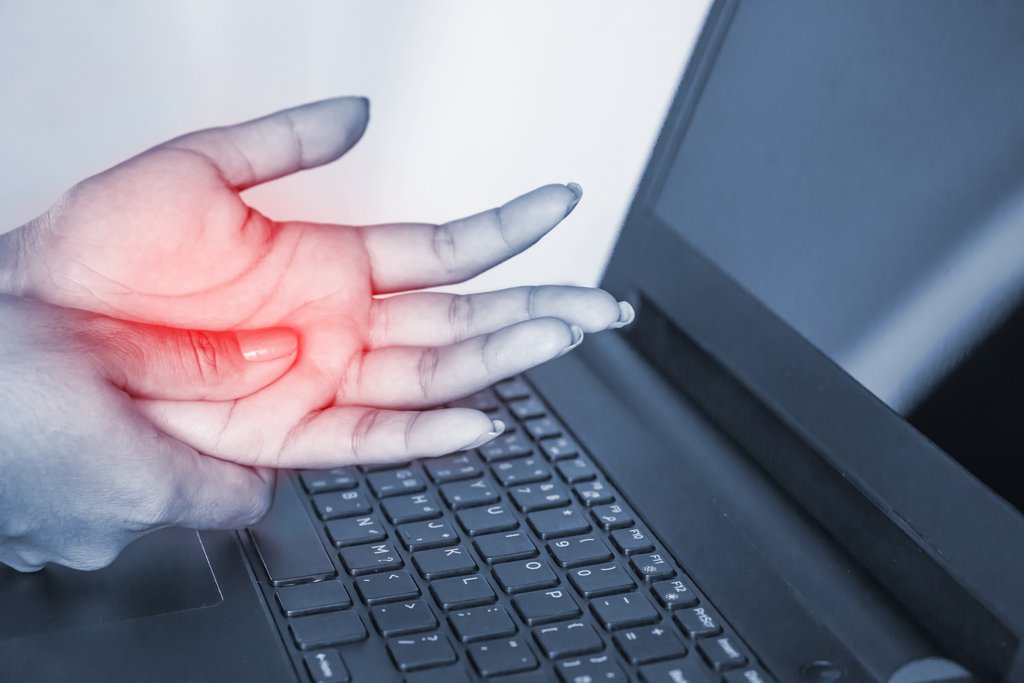
- Fraunfelder, Frederick T, et al. The role of medications in causing dry eye. Journal of ophthalmology vol. 2012 (2012): 285851. doi:10.1155/2012/285851
- J. Daniel Nelson, et al. Non-hormonal Systemic Medications and Dry Eye. Ocul Surf. 2011 Oct;9(4):212-26. https://doi.org/10.1016/S1542-0124(11)70034-9
- Jaanus SD. Ocular side effects of selected systemic drugs. Optom Clin. 1992;2(4):73-96. https://www.ncbi.nlm.nih.gov/pubmed/1363080
- Junping Li, Ramesh C. Tripathi, Brenda J. Tripathi. Drug-induced ocular disorders. Drug Saf. 2008;31(2):127-41. https://www.ncbi.nlm.nih.gov/pubmed/18217789
- Facts About Dry Eye. The national eye institute. https://nei.nih.gov/health/dryeye/dryeye. Last accessed August 25, 2019.
Antiacne medication
If you have severe acne, your doctor may prescribe isotretinoin, a derivative of vitamin A which reduces the amount of oils produced by your skin. As a side effect, it impacts the production of the lipid layer of your tear film, leading to tear film instability and increased water evaporation, which result in dry eye.1-5
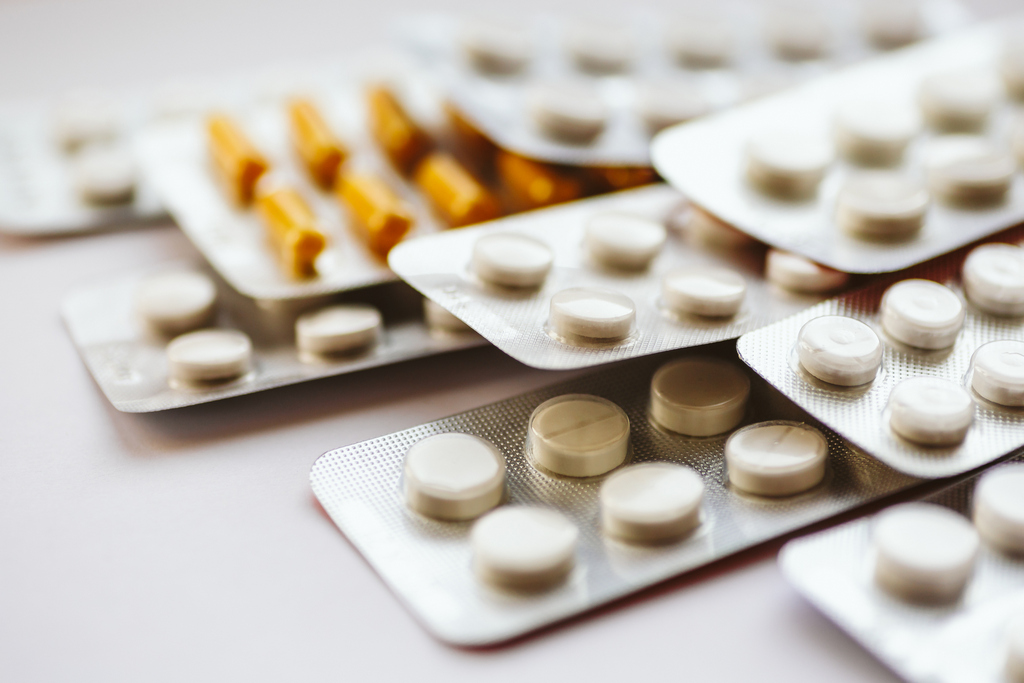
- Fraunfelder, Frederick T, et al. The role of medications in causing dry eye. Journal of ophthalmology vol. 2012 (2012): 285851. doi:10.1155/2012/285851
- J. Daniel Nelson, et al. Non-hormonal Systemic Medications and Dry Eye. Ocul Surf. 2011 Oct;9(4):212-26. https://doi.org/10.1016/S1542-0124(11)70034-9
- Jaanus SD. Ocular side effects of selected systemic drugs. Optom Clin. 1992;2(4):73-96. https://www.ncbi.nlm.nih.gov/pubmed/1363080
- Junping Li, Ramesh C. Tripathi, Brenda J. Tripathi. Drug-induced ocular disorders. Drug Saf. 2008;31(2):127-41. https://www.ncbi.nlm.nih.gov/pubmed/18217789
- Facts About Dry Eye. The national eye institute. https://nei.nih.gov/health/dryeye/dryeye. Last accessed August 25, 2019.
When you think your medications may link to your dry eye symptoms, don’t stop taking them and discuss with your doctor for alternative treatments. In most cases, drug-induced dry eye will disappear after the medication is discontinued, but it might take several weeks or even months.



